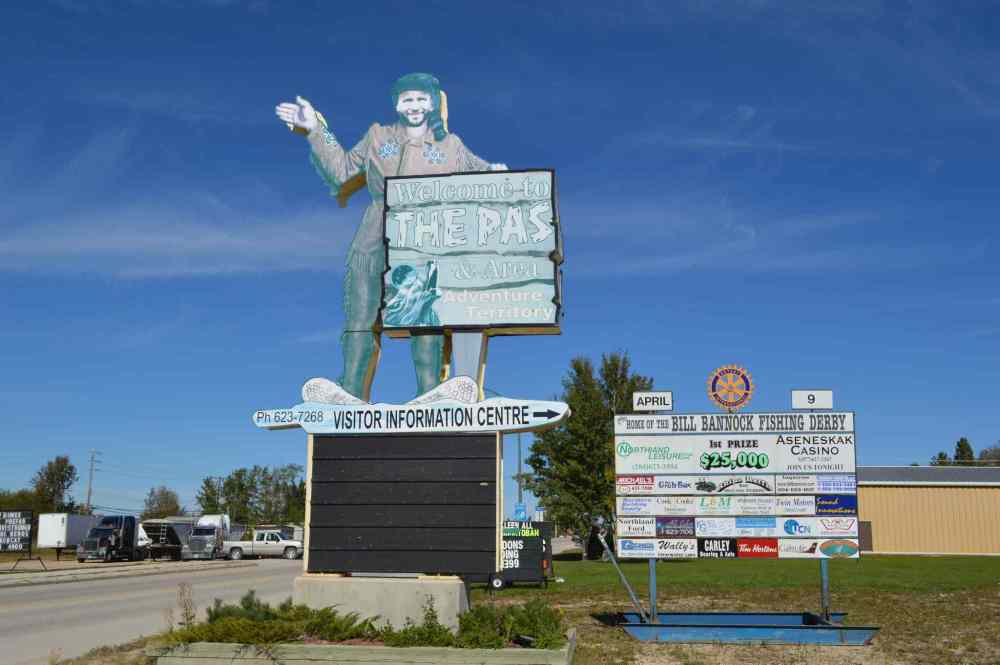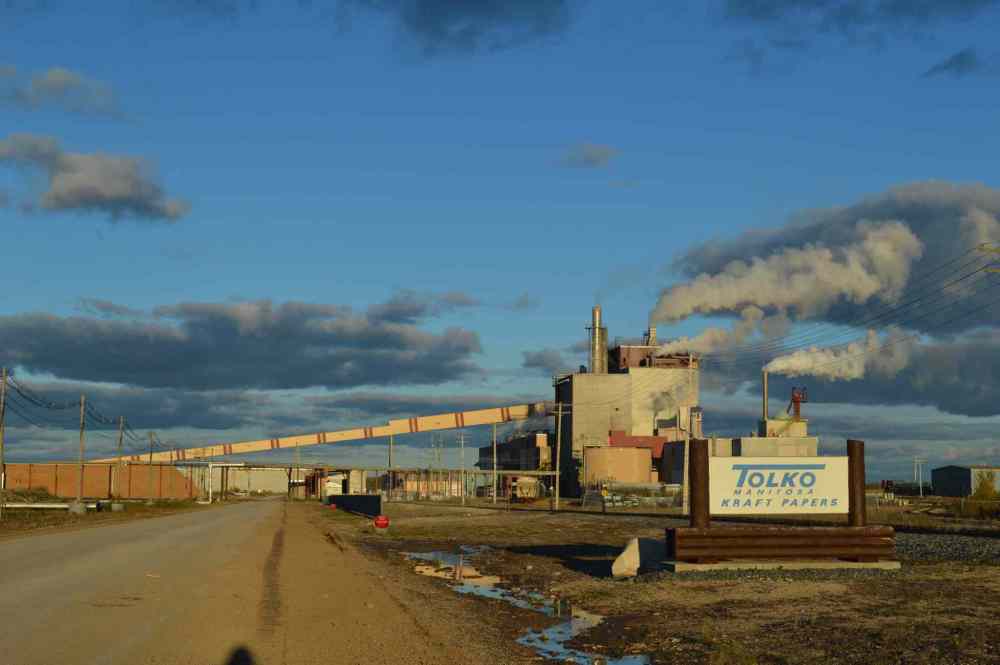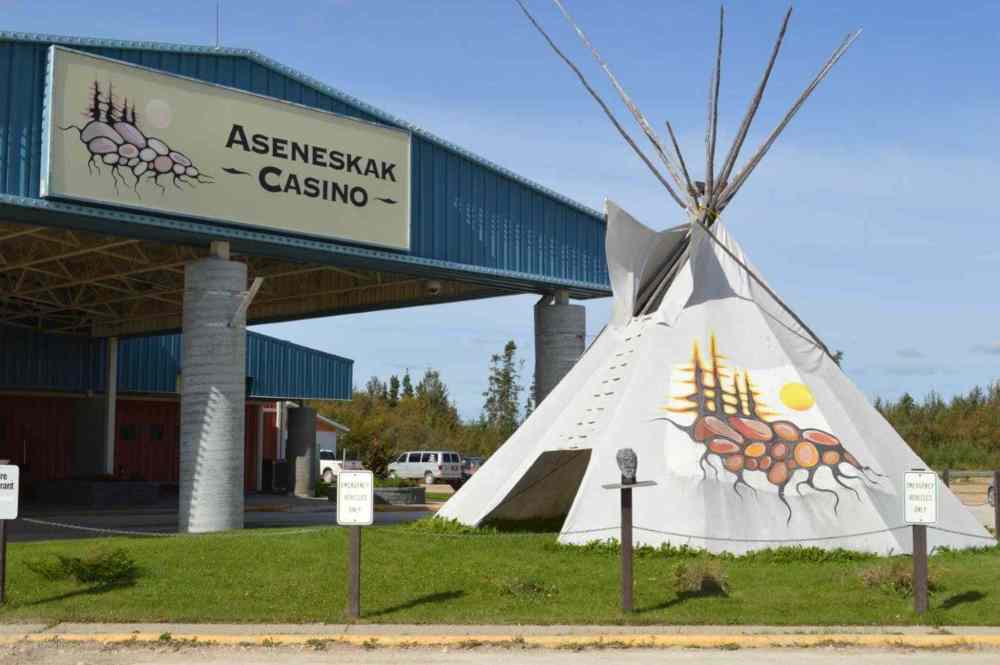A northern chill: The Pas fears town’s economy will go cold when Tolko closes mill
Advertisement
Read this article for free:
or
Already have an account? Log in here »
To continue reading, please subscribe:
Monthly Digital Subscription
$1 per week for 24 weeks*
- Enjoy unlimited reading on winnipegfreepress.com
- Read the E-Edition, our digital replica newspaper
- Access News Break, our award-winning app
- Play interactive puzzles
*Billed as $4.00 plus GST every four weeks. After 24 weeks, price increases to the regular rate of $19.00 plus GST every four weeks. Offer available to new and qualified returning subscribers only. Cancel any time.
Monthly Digital Subscription
$4.75/week*
- Enjoy unlimited reading on winnipegfreepress.com
- Read the E-Edition, our digital replica newspaper
- Access News Break, our award-winning app
- Play interactive puzzles
*Billed as $19 plus GST every four weeks. Cancel any time.
To continue reading, please subscribe:
Add Winnipeg Free Press access to your Brandon Sun subscription for only
$1 for the first 4 weeks*
*$1 will be added to your next bill. After your 4 weeks access is complete your rate will increase by $0.00 a X percent off the regular rate.
Read unlimited articles for free today:
or
Already have an account? Log in here »
Hey there, time traveller!
This article was published 17/09/2016 (3297 days ago), so information in it may no longer be current.
THE PAS — It was five seconds of silence, but it spoke volumes to the uncertainty reverberating throughout this northern town.
When asked if the town’s largest employer will remain up and running on Dec. 3, Manitoba’s Growth, Enterprise and Trade Minister Cliff Cullen paused several seconds before speaking frankly.
“It would be purely speculative on my part to make that assessment,” Cullen said earlier this week.
Tolko Industries announced in late August it would be closing the pulp-and-paper mill on Dec. 2, throwing 332 people of work. Since then, neither Cullen, The Pas Mayor Jim Scott, nor the Veron, B.C.-based company have been able to quell fears in the town of 5,500.
“It’s a disaster,” said longtime resident Ken Box, who worked for Tolko for 17 years as a pipefitter. “It’s high-paying jobs and people who are there were lucky to be there.”
The $37-million annual payroll that flows to Tolko employees will disappear, as will the disposable income that comes with the high-paying unionized jobs. An additional 250 seasonal contract loggers will also be out of work. The Tolko news came on the heels of Omnitrax Canada’s announcement it was cutting the Hudson Bay Railway service — its operational headquarters are in The Pas — from twice to once a week.
Two body blows; a town sent reeling.

Whether you’re are a nurse, a car salesman, an MTS worker or a cook, everyone in The Pas has a deep grasp of Tolko’s impact on the town’s economy. Sitting with residents at the popular lunch spot Fat Boys, people instantly produced a list of the trickle-down effect the closure would have:
Hotels that rely on out-of-town workers; independent truck drivers who haul wood chips and pulp out of the mill; a school division that could see its tax income plummet if there is a mass exodus out of The Pas, to name a few.
“Throw a stone at Tolko and you can see the ripple effect it has on every part of this town,” said one diner.
Joe Maciesza works as a cook at Good Thymes, a bustling restaurant and nighttime hotspot in The Pas, and says while his restaurant will stay afloat, it’ll take a big hit when it loses the Tolko lunch crowd and countless catering gigs.
“It’ll hurt everybody,” he said, adding Tolko brings in thousands of dollars in revenue to the restaurant. “It is 300 people, and also 300 families, so it’ll be teachers, everyone. Lots of people are already leaving.”
Scott, the town’s mayor, paints this scenario: a power engineer loses his job at Tolko, moves the family to find work in another town, his spouse owns a business so has to close shop and takes her kids out of the school system. That means more people out of work and fewer students in the school system.
“The ripple effect keeps going and going and going until you hit the ground. We think, if nothing happens and it just closes, it’ll be within the 1,400 to 1,500 job (loss) range, so it is scary,” Scott said.
But it is not all doom and gloom.

The town, often called the “Gateway to the North”, also boasts a hospital, a correctional facility, the University College of the North, and a large RCMP detachment — public operations that aren’t likely to disappear any time soon, explained Dawn Madden, a nurse at St. Anthony Hospital in The Pas.
“All those places also employee hundreds of people,” she said.
A hub in isolation
While The Pas is the gateway to the north, there’s no question it is isolated from the south. It’s about 600 kilometres northwest of Winnipeg — and for 400 of those kilometres, there is a lack services. Near the midway point at Fairford, a sign warns motorists they are about to hit 180 kilometres of highway without access to gas or food.
But there is no sense of isolation inside The Pas. Its permanent population might be 5,500, but hundreds more can be visiting on any given day because of its role as a northern hub. As well, it is bordered by Opaskwayak Cree Nation, which has about 3,000 people living on reserve.

“We are not a Flin Flon or a Thompson, we are not a one-industry town,” Scott said. “We are the service centre (of the north), people from hundreds of kilometres around come here to see their doctors, to see their lawyer, buy their cars, buy their furniture.”
It boasts a Tim Hortons, Subway, A&W, and McDonalds. The Otineka Mall situated between The Pas and Opaskwayak Cree Nation is the biggest mall in northern Manitoba. But the pulp and paper industry has been the town’s economic engine since the mid-1960s.
So the death of the mill could send shock waves throughout northern Manitoba and the rest of the province, said Bill Henderson, a former longtime employee of Tolko and the mill’s predecessor owners. Henderson has been hired by The Pas Community Development Corp. to lead its response team.
“This is not just an issue about The Pas. This is an issue about the forest industry in Manitoba and its future viability, and it is an issue about northern Manitoba,” Henderson said. “This is a provincial industry, a very substantial part of it, an industry that supports northern Manitoba, it supports north-central Manitoba… it exceeds into Saskatchewan where there are saw mills and logging operations that are dependent on having an outlet for their product.
“This has a broad regional significance.”

Hope in hard times
Hope remains that a buyer will be found before Dec. 2. It’s clear, though, Tolko wants out after rejecting a three-year tax break from the town.
Earlier this week, the community was abuzz with rumours that an official from an unnamed company toured the mill. Several employees from Tolko said they were not allowed to ask the official any questions, for fear of interfering with a “possible deal.”
Many government officials have repeatedly said possible buyers are “kicking tires,” while Tolko confirmed several companies have expressed interest.
Chief Arlen Dumas of Mathias Colomb First Nation, which is leading a consortium of regional First Nations in a bid to buy the Port of Churchill from Omnitrax, didn’t rule out a collaborative ownership between First Nations and government partners after a meeting last Monday with First Nations, local government and employees.
Kraft paper production — which is a stronger, darker product produced using a process for conversion of wood into wood pulp — is unique to Canada, with only a handful of paper mills in the world producing it. The Tolko paper is made into multiwall shipping sacks for sugar, seed, feed, potatoes, cement and other products.
That’s why Henderson and Scott remain convinced it’s still economically viable.
Kristian Davisson, who works for a local car dealership, remains hopeful a buyer can be found, citing interest from aboriginal bands and other corporations. He doesn’t buy into the notion the end of Tolko spells the end of The Pas.
“As for this turning into a ghost town with tumble weeds, I don’t think so,” Davisson said. “The town will linger on. It is not the apocalypse. But it’s going to hurt.”
Current Tolko employees would only speak anonymously about the situation, but one worker who has been with the company and its various iterations for over 30 years said it’s the younger workers they are concerned about.
“I cry for the town and for the people who work at Tolko and don’t have the years I do. I cry for the people under 55 who built their future on The Pas and on Tolko,” the worker said.
kristin.annable@freepress.mb.ca
Twitter: @kristinannable
History
Updated on Saturday, September 17, 2016 2:33 PM CDT: Fixes typo




